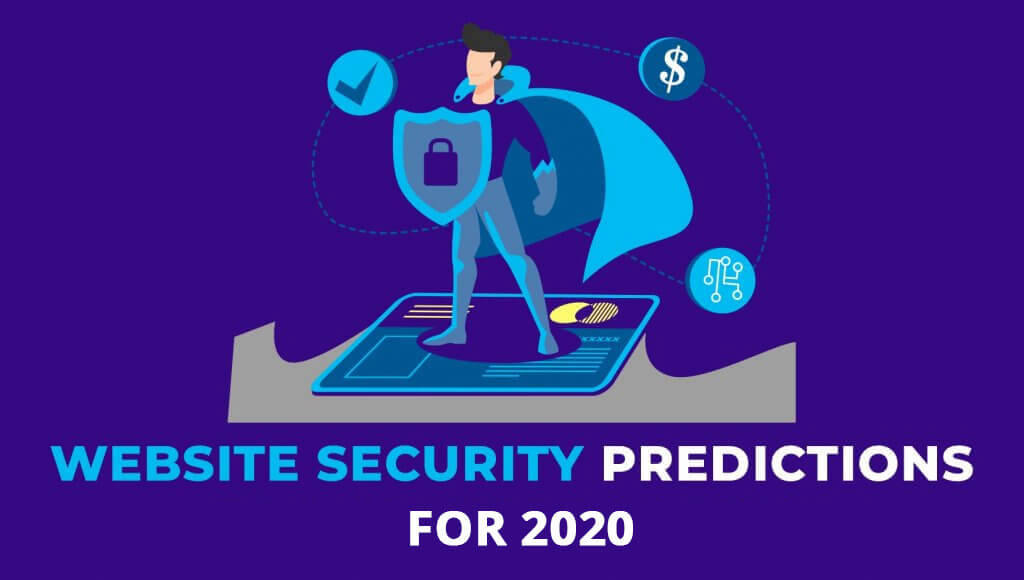Website security experts predict that in 2020, cybercriminals will start to mix things up to have their way. Instead of focusing primarily on data breaches, they’ll be adding a bit of data manipulation to their repertoire. So, for example, if your website stores medical records, cybercriminals won’t just be leaking your records. They’ll be modifying them, too. This can lead to an even greater loss of consumer trust. Imagine what happens if your consumers can’t even trust your data anymore. That’s why FLATsite takes website security so seriously. Today’s criminals are smarter, and the stakes are higher than ever.
To help protect your website, we’re cluing you in on seven website security trends that we expect to see a lot more of in 2020.
7 trending website security methods for 2020:
1. Serverless hosting
With serverless hosting, there’s still a server running the code. It’s called “serverless” hosting because the server management tasks are invisible to the developer. This gives developers more time to focus on innovation and productivity, but it also has an important security benefit. Serverless hosting means there are fewer points of entry for cybercriminals to exploit, because there’s no underlying database or processing server in constant need of maintenance and patching.
WordPress users will particularly benefit from serverless hosting, because WordPress, with its notorious vulnerabilities and sweeping popularity, is a prime target for hackers.
Serverless hosting is perfect for WordPress users, but there’s just one problem: WordPress is a dynamic CMS, which means it queries the database for content. This makes it inherently incompatible with serverless hosting, which requires a static website. Luckily, we can fix that.
2. Static websites
With a static website, you never have to worry about hackers injecting malicious code into your website. Static websites are built by static site generators (like ours). When users request a page from your website, the server just sends them the file for that page, instead of building the page every single time it’s requested. This means that scripting and other traditional hacking methods don’t work on static sites.
FLATsite is a WordPress management platform that lets you develop hundreds of websites from a single dashboard. All you have to do to secure your WordPress site is create an account and install WordPress on our remote servers. Once you’re done creating your website, it’s exported as a static HTML site, thanks to our built-in static site generator.
Static sites also prevent traffic-spike-related website crashes. That’s because when you use a static website, if your website gets more page requests than usual, there’s no extra work involved in building those pages. Static websites are inherently scalable. If your site is mentioned on a popular social media site and gets flooded with extra traffic, you won’t need to be running around getting your hosting provider to give you extra bandwidth, nor do you need to stockpile excessive amounts of bandwidth in case traffic ever spikes again.
Static websites are going to be big in the coming years, because not only are they great for website security, but they also help you circumvent scalability issues.
3. Headless CMS
With headless CMS technology, you can manage content on your database using the back end of your website without having to interact with the front end.
When you separate the back end and the front end of your website, you get to modify them independently, which means each side of your website can evolve at its own pace. You can also tweak one without affecting the other, which makes it easier to apply tests and to revert to the original state of your system if anything goes wrong.
We use headless WordPress technology in which we detach WordPress websites from servers and the traditional dashboard. With our platform, you can securely access every one of your WordPress websites, so you only need to log in once. You can use this service to manage many websites that need little or no maintenance.
4. Web Application Firewalls
Any company that uses apps needs a Web Application Firewall (WAF). WAFs help fight application-level attacks by collecting information on new vulnerabilities before they’re widely noticed by cybercriminals. With this information, the WAF uses rule-based filtering to block attacks like SQL injection and cross-site scripting.
5. Clearly defined website security roles
Many cyberattacks could have been prevented if everybody in a company were aware of the exact nature of his or her role in website security. Take a poll of your employees right now. What you might find that Department A thinks Department B is responsible for one aspect of website security. However Department B thinks that that responsibility lies squarely with Department A! Everybody thinks that somebody else is dutifully keeping the website secure! This means the gates are left wide open for hackers to waltz right into.
In 2020 and beyond, we’re expecting businesses to learn from the costly website security lessons of other companies’ failures. It’s time to beef up internal communication systems so that everybody knows exactly who’s responsible for different aspects of website security.
6. Increased 2FA
In the past, many websites used to require only a password before granting access to users. This means that cybercriminals who are bent on breaking into those websites needed to gather only one piece of information. In 2020, we’re predicting that more websites will implement 2-Factor Authentication. This means, for example, that instead of granting access after the user enters a password, the website will require an additional factor of authentication. This means a special four-digit code is sent to a user’s phone once the password is entered. So, if a hacker wishes to enter your website or steal your visitors’ information you he will now need to know the user’s password and the code that was sent to the user’s phone. This, of course, makes things decidedly more difficult for hackers.
7. SSL certificates
SSL certificates encrypt information that’s sent between browsers and servers. This protects users’ sensitive information, eliminates the risk of phishing, and builds consumer trust. These benefits have been long touted by the website-security community, but there are still website owners who haven’t taken this step to protect their sensitive information.
SSL certificates are increasingly affordable. What’s more many search engines give a ranking boost to websites that enable SSL certificates. So, we’re predicting a massive boost in the use of SSL certificates in 2020.
Wrapping up
As cyberattacks become more insidious, our defences must become increasingly sophisticated and creative.
The website owners who don’t get caught up in mass hacking efforts tend to be the ones who are proactive about their website security strategy. Don’t wait for a cyberattack to bring your system to its knees. Invest in your website security strategy now.







